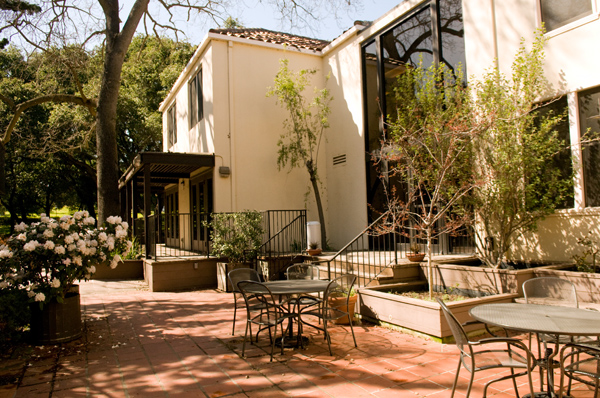The University does not plan to establish a community center for undocumented students and students who are Deferred Action for Childhood Arrivals (DACA) recipients, said Senior Associate Vice Provost and Dean of Students Mona Hicks at a Wednesday webinar. University staff also updated students on the immigration resources available at Stanford and the legal landscape of DACA.
Despite a Supreme Court ruling that maintained protections for DACA recipients in June, the U.S. Department of Homeland Security (DHS) is refusing to accept new DACA applications. Hicks expressed the University’s “deep disappointment with the memorandum from DHS that reconsidered the legality of DACA” and urged students who are DACA recipients (DACAmented students) to be aware of their rights.
Hicks’ announcement about the community center follows student activists’ calls throughout the summer for the creation of such a center. Activists who planned a reverse town hall with administrators described the University’s response to attacks on the rights of international and undocumented students as “woefully inadequate” and demanded, among other requests, the establishment of a center to “more actively advocate for noncitizen community members [and provide] increased legal support and emergency grant provisions.”
Instead of creating a new community center, Hicks said the University plans to collaborate with the Bechtel International Center, which is “reevaluating and reorganizing their work,” to fold in “more advocacy connections” for undocumented and DACAmented students through the center.
Bechtel has faced criticism for not adequately supporting undocumented and international students facing immigration challenges. Students wrote in a Daily op-ed that recent immigration policy changes have revealed Bechtel’s “structural limitations” that prevent the center from providing necessary advocacy and support for undocumented and international students.
‘Power over panic’
Stanford Law School lecturer Lisa Weissman-Ward, who also serves as the clinical supervising attorney for the Stanford Law School Immigrants’ Rights Clinic (IRC), called DHS’ decision to reject new applications for DACA a “fairly stunning rebuke of the Supreme Court.”
DHS’ decision follows a Supreme Court ruling that the Trump administration’s efforts to end the DACA program entirely in 2017 were “arbitrary and capricious” and that DACA protections must be maintained.
Although some legal scholars believed that this decision would reinstate the original protections afforded to DACA recipients, DHS announced that first-time DACA applications would be rejected and that renewed requests for deferred action and work permits would only be extended by one year instead of the two years provided for in the original executive order.
“[It is unclear] if or when the administration will ultimately issue another formal recission of the entire program, if the administration will make additional changes to the benefits of DACA or whether pending lawsuits may change the ability for individuals to apply for DACA for the first time,” Weissman-Ward said.
She reminded students that although the government has been “successful at inciting fear,” it is important to maintain “power over panic.” Weissman-Ward and Hicks recommended that undocumented and DACAmented students schedule a free and confidential individualized consultation with the IRC, which can also assist Stanford students and family members by providing contacts and referrals to nonprofits or private legal firms.
In addition, Weissman-Ward said that it is crucial for undocumented and DACA students to know their rights. She urged students to carry a “red card,” which contains information on the rights and protections individuals have under the U.S. Constitution, and “have hotlines on hand” in case of enforcement activity.
Hicks also announced the creation of a student and faculty working group that will be responsible for operationalizing the University’s “commitment to centering undocumented and DACAmented students at Stanford.” She said interested students should contact the Dean of Students Office.
The Zoom webinar was hosted by the IRC, the Dean of Students Office and El Centro Chicano y Latino, and was moderated by Jacob Velasquez, assistant director of El Centro Chicano y Latino.
Contact Cameron Ehsan at cehsan ‘at’ stanford.edu
